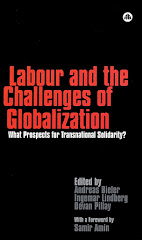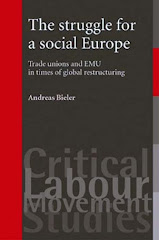On Wednesday, 22 September at 7.30 pm a public meeting took place in Nottingham/UK to discuss and organise resistance against cuts in the public sector at the local level. The meeting was addressed by representatives from the local Trades Union Council, the Communication Workers’ Union, the National Union of Teachers, UNISON as well as a whole range of local campaigns against Mental Health cuts, Learning Disability cuts and School Building cuts amongst others. In view of the drastic cuts to the public sector, related job losses and privatisation of the provision of essential public services, the mood was determined and defiant.
Interestingly, the meeting was also addressed by two local Labour Party MPs, Vernon Coaker MP for Gedling and Lilian Greenwood MP for Nottingham South. Their calls for resistance against cuts, however, were not unanimously welcomed. Speaker after speaker pointed out that public sector restructuring and the undermining of citizens’ confidence in their public services had already started several years ago under the last New Labour government. It was New Labour governments, which had introduced new public management methods in the administration of the public sector. It was New Labour governments, which had started the outsourcing and privatisation of some public services. Speakers also highlighted the fact that New Labour had not managed in 13 years in government to repeal the anti-trade union legislation brought in by the Thatcher governments in the 1980s. If trade unions find it so difficult to organise strikes and resistance now, then this is also the responsibility of New Labour. In short, how can New Labour play a leading role in a movement against budget cuts, if they are to a considerable degree responsible for the difficulties faced?
In the end, a large part of the people present accepted that considering the severity of the forthcoming cuts, it would be foolish to exclude member of the Labour Party from participating in the campaign. The message has to be that it was the bankers, who made mistakes and are responsible for the large national debt. It should also be them, who pay for it. At the same time, it was clear that the campaign must not become an electoral machine for New Labour.
As a first step, it was agreed to focus on mobilising for a demonstration against budget cuts on 3 October in Birmingham, where the Conservative Party will hold its annual conference.
Prof. Andreas Bieler
Professor of Political Economy
University of Nottingham/UK
Andreas.Bieler@nottingham.ac.uk
Personal website: http://www.nottingham.ac.uk/~ldzab
23 September 2010
The purpose of this blog is to provide analytical commentary on formal and informal labour organisations and their attempts to resist ever more brutal forms of exploitation in today’s neo-liberal, global capitalism.
Search This Blog
About Me

- Andreas Bieler
- Andreas Bieler is Professor of Political Economy at the University of Nottingham/UK. (@Andreas_Bieler)










